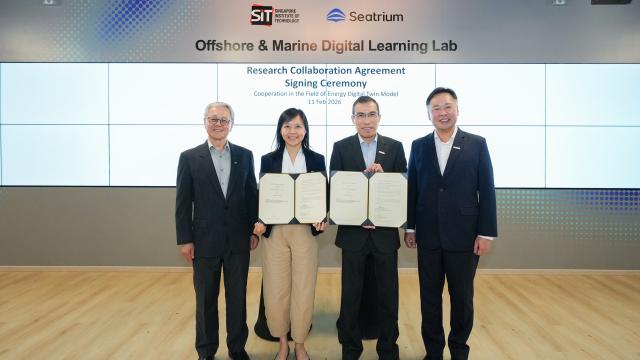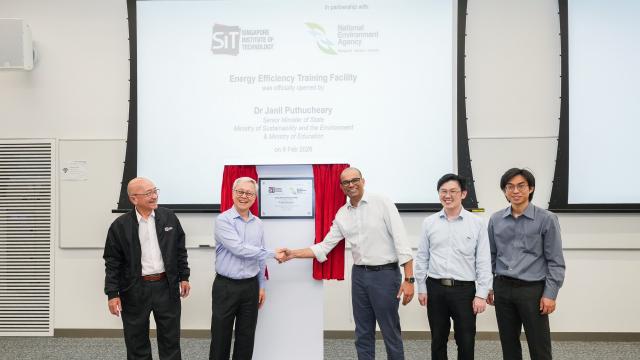The head of the Energy Efficiency Technology Centre (EETC) at SIT applies a unique blend of research excellence and real-world experience to advancing engineering education while addressing key challenges like decarbonisation and energy efficiency.
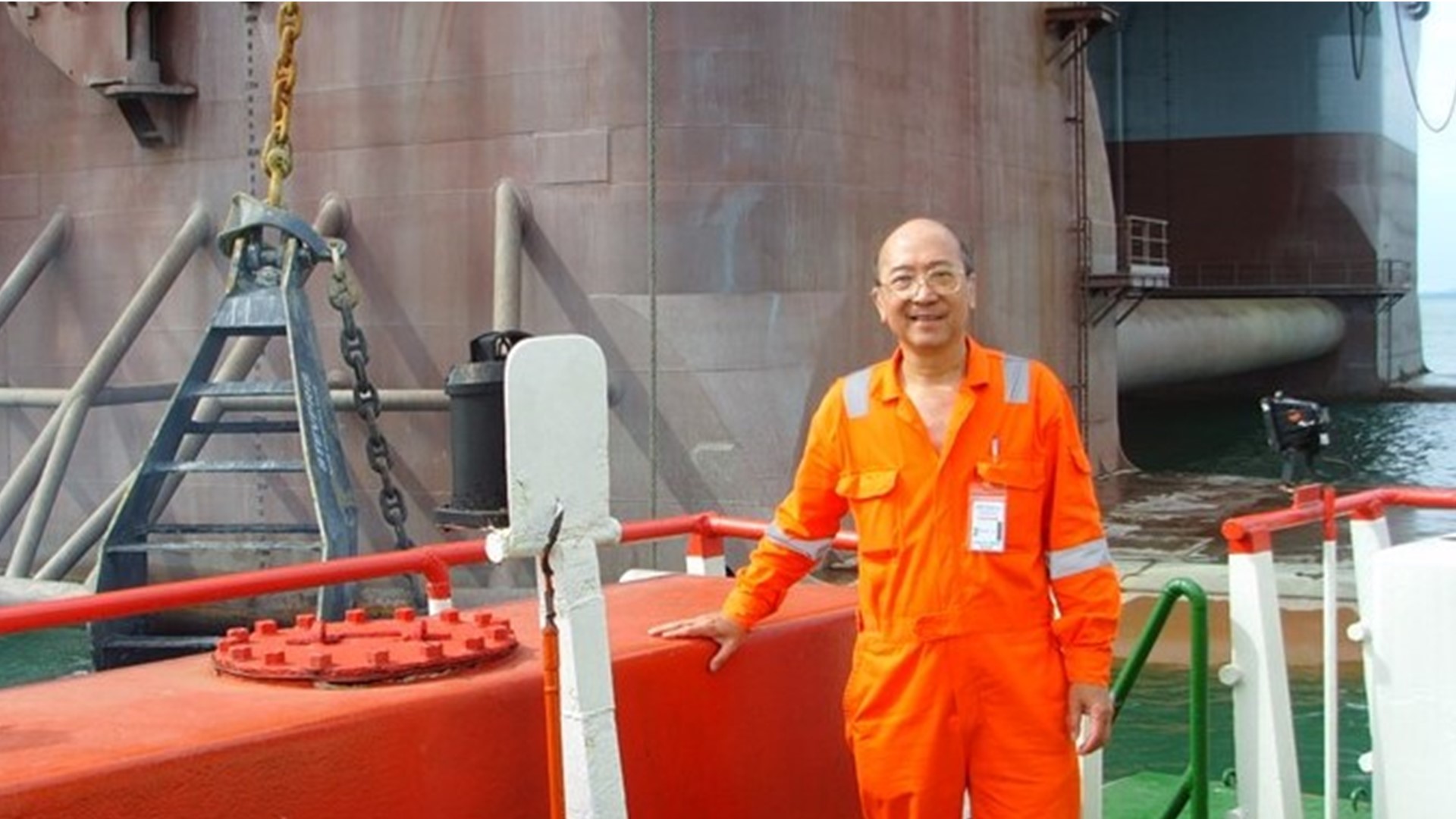
Prof Lock Kai Sang at an oil rig on one of his assignments as a specialist consultant. (Photo: Lock Kai Sang)
One morning in 2010, Professor Lock Kai Sang received an urgent phone call for help. He immediately hopped into a boat and two hours later, was out on the open ocean, where his frantic client waited for him on a semi-submersible oil rig.
The rig, which had just been completed at the cost of over US$500 million, had a malfunctioning 5MW motor-driven propeller system. None of the engineers on board could fix it, so they turned to Prof Lock, who was then working as a specialist consultant in electrical engineering services and mission-critical facilities.
“After spending more than 24 hours without sleep troubleshooting the motor over-heating problem, I was able to identify the root cause,” recalled Prof Lock. “The problem had nothing to do with the sophisticated electronic control system. It was an under-voltage problem which was easily resolved by increasing the supply voltage using the tap-changer of the transformer.”
Not An Armchair Theorist
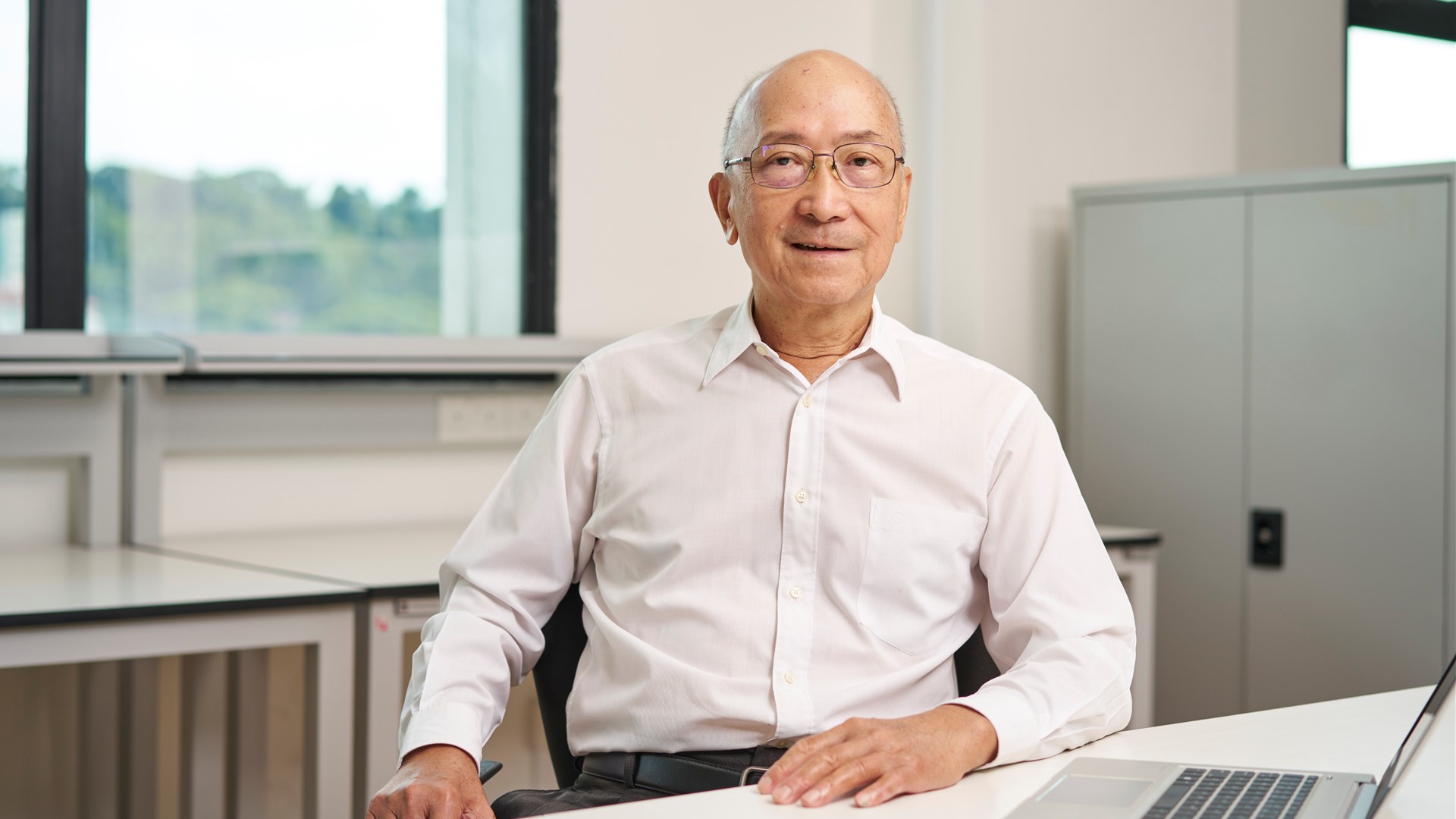
Prof Lock Kai Sang at work. (SIT Photo: Keng Photography/Tan Eng Keng)
Over his illustrious career, which spans two decades as a practising professional engineer as well as another two decades in academia, he developed what he calls a “holistic approach to solving complex engineering problems” approach.
This approach is a hallmark of Prof Lock’s teaching style at the Singapore Institute of Technology (SIT), where he teaches two modules, Professional Practices in Power Engineering and Engineering Ethics. He draws on the beauty of engineering principles and case studies from his consulting experience to equip students with the ability to solve real-world problems.
One memorable assignment he gave his students was designing an electrical system for a mixed-use development comprising a mall and an office tower. “The students complained that it was a challenging, time-consuming assignment because it required them to develop solutions for complex electrical installations to meet the diverse needs of stakeholders, and also to comply with local codes and standards including sustainability requirements,” he chuckled. “But some students later told me this module really benefitted them after they started work and handled real-world engineering problems.”
By the Bootstraps
From a young age, Prof Lock appreciated the significant societal contributions that engineers can make. “Growing up in a kampung with only kerosene lamps, I saw the profound changes and convenience when electrification finally reached my village in Malaysia,” he recalled.
His childhood experience, deep interest in science, and his family’s financial constraints led him to study engineering. His parents, who worked in agriculture, could not afford to fund other more costly academic options like a medical degree. After attending a polytechnic, he worked for a few years to save enough money for his bachelor’s and postgraduate degrees in electrical engineering in the United Kingdom.
While studying at the University of Strathclyde, he worked weekends at a Chinese restaurant and as a part-time court interpreter. “The part-time jobs not only financially supported my studies, but also helped me grow as a resilient person who appreciates the opportunities in life.”
A Lifelong Engineering Educator
Since his Ph.D. research was on the design optimisation of electrical machines, he naturally specialised in power electronics when he entered the academic field in 1980. Motivated to deploy his research and development insights to meet the industry’s needs, he set up his own consultancy in 1997, tackling complex projects from Singapore to Asia, the Middle East and beyond.
This helped him develop such deep expertise in niche topics that he wrote a 1,185-page tome, the second edition of “Grounds for Grounding: a Circuit-to-System Handbook”, which was published in 2023. He continued to pursue his passion for education, joining SIT in 2016 because of its focus on applied learning and applied research.
“As an educator, I enjoy seeing my students being able to apply fundamental engineering principles to solve authentic engineering problems. It is fulfilling to see my students develop into well-rounded individuals who excel in their profession and career, and rise to positions beyond me,” said Prof Lock.
Meanwhile, he is advancing the quality of global engineering education. He was recently elected Chairman of the Washington Accord, a multilateral agreement among institutions responsible for accrediting tertiary-level engineering qualifications. The Accord aims to assist the mobility of professional engineers through developing and recognising good practices in engineering education. Such contributions have won him the 2021 Co-Laureate of the WFEO Medal for Excellence in Engineering Education by the World Federation of Engineering Organizations.
A Passion for Sustainability
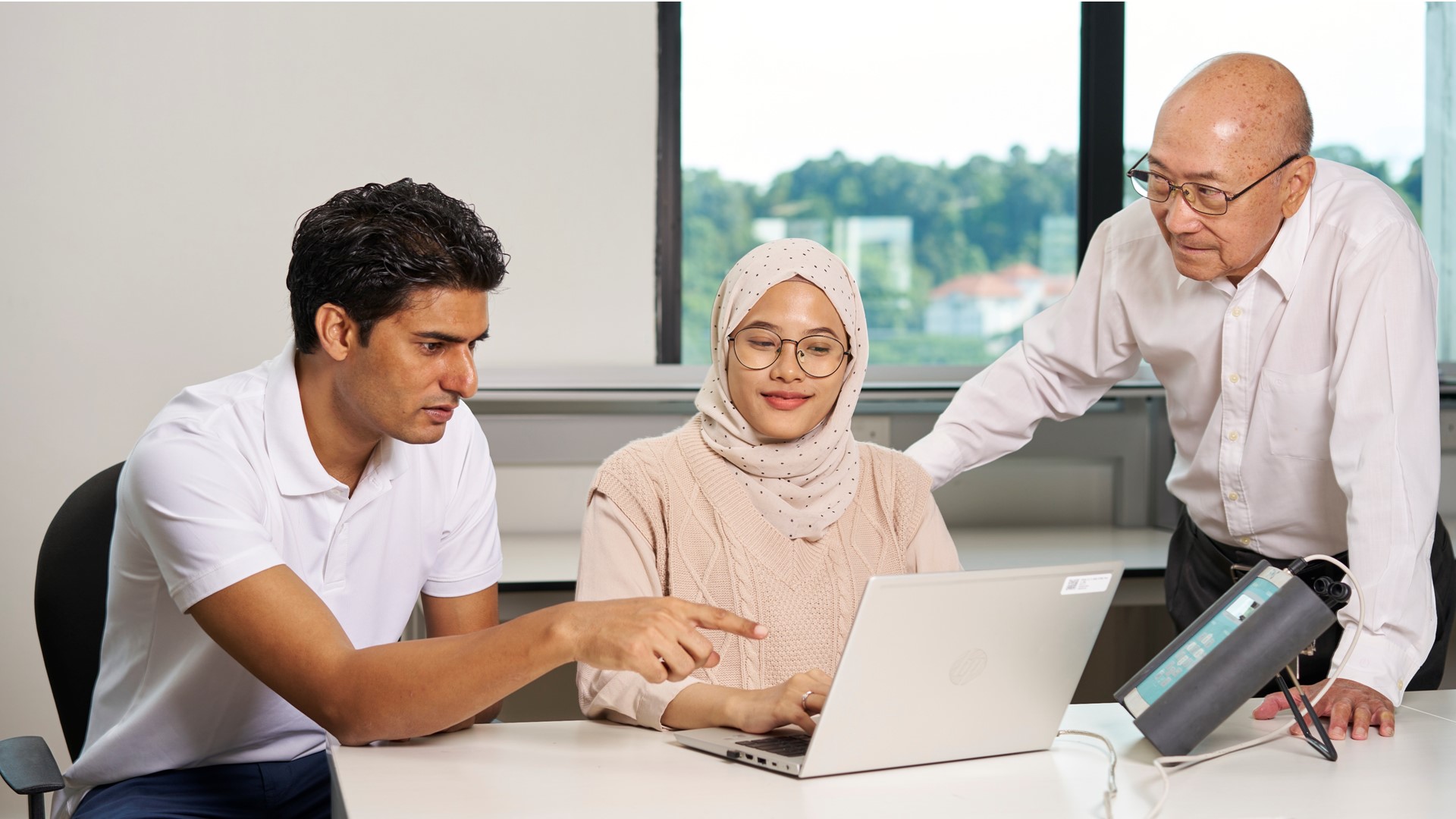
(From left) EETC team members Abid Ali, Nur Umairah Binte Omar and Prof Lock analysing data collected from the ultrasonic flowmeter. (SIT Photo: Keng Photography/Tan Eng Keng)
Looking ahead, he is pouring his energy into building energy efficiency, sustainability and professional competency in Singapore’s ecosystem. This has been a long-running focus for Prof Lock, who has served as the Chairman of the Accreditation Committee for the Energy Services Companies since 2005. For his distinguished contributions, he was conferred the Public Service Star award in 2020 by the President of the Republic of Singapore.
As head of the Energy Efficiency Technology Centre (EETC), which supports local SMEs in energy efficiency initiatives, he is eager to do much more, such as working with stakeholders to develop professional accreditations for much-needed green skills like assessing carbon credits.
“There is a lot to be done for EETC to play a catalytic role in Singapore and the broader global shift towards sustainability. Sustainable development is a global challenge that requires collective action and collaboration across sectors and regions. It is crucial to build global alliances in education and professional practices to facilitate the sharing of knowledge and best practices, foster collaboration across sectors, develop common standards and guidelines, promote innovation, and address global challenges. Engineering education must reshape curriculum and practice to develop green skills, which encompass the knowledge, abilities, and competencies required to operate in a green economy,” said Prof Lock.















![[FA] SIT One SITizen Alumni Initiative_Web banner_1244px x 688px.jpg](/openhouse2025/centre-professional-communication/sit-teaching-and-learning-academy/directory/sites/default/files/2024-12/%5BFA%5D%20%20SIT%20One%20SITizen%20Alumni%20Initiative_Web%20banner_1244px%20x%20688px.jpg)
